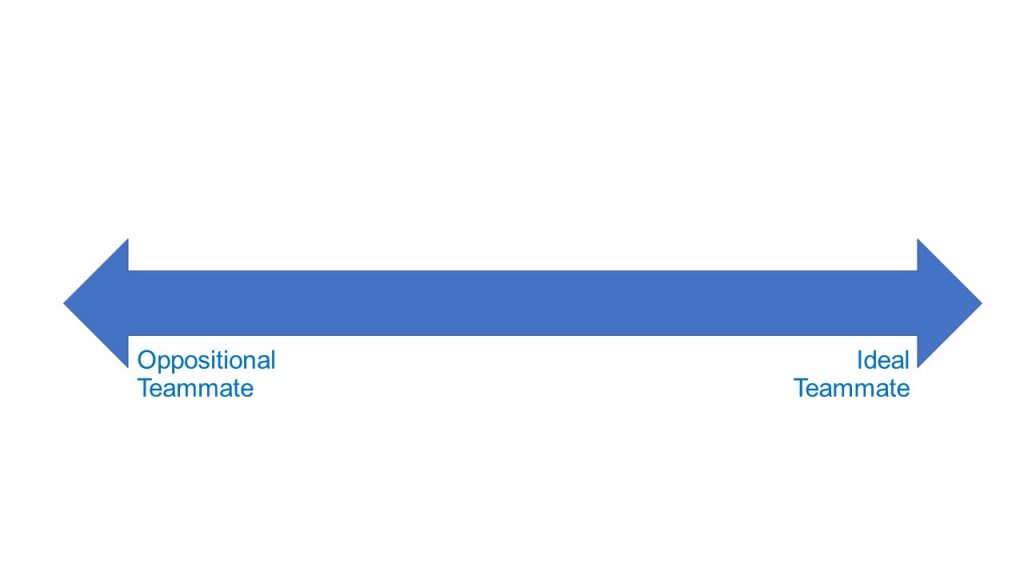So many of us are led to believe success is about being the strongest, smartest and fastest. As a result, too many people mistakenly approach work like a competition. ‘If one person wins, someone else loses.’ This scarcity mentality leads to siloes, information hoarding and transactional tit-for-tat relationships. ‘I’ll do you a favour but only if you can do a favour for me.’
But the truth is, the more we help others, regardless of whether they can help us in return, the more we and everyone around us benefits. Teamwork is the surest formula to help us and everyone around us succeed.
Those who succeed in their career are also ideal teammates. They shine a light outward, helping others grow, develop and thrive. These team players are the ones we all gravitate to; they help us perform at our best.
On the other end of the spectrum are our oppositional teammates. These are the ones who hoard work, resist collaborating, criticize others and are perpetually trying to prove themselves as the smartest and hardest working. It’s as if they are playing a self-serving, zero-sum video game, maximizing their own work “tokens”. But ironically, their efforts backfire. Their self-serving efforts are counterproductive. They repel people and diminish their own success.
The reality is thriving is a social pursuit. When we help others, we help ourselves as well. When we bring out the best in others, we experience success ourselves.
Shawn Achor shares a wealth of research to support this fact in his best-selling book Big Potential. Achor cites multiple examples of how success is less about ‘survival of the fittest’ and more about ‘survival of best fit’. As Achor says, “By becoming a “positive node” in your workplace, company, or community, and helping those around you improve their creativity, their productivity, their abilities, their performance, and more, you are not only helping the group become better; you are exponentially increasing your own potential for success.”
Clearly, there is a wide range where people hover between being an ideal teammate and an oppositional teammate. I think it’s safe to assume we all intend to be ideal teammates. But what exactly does it mean to be the kind of person that generates real results and helps their team perform at a higher level?
High-performance teammates embrace four distinct traits:
- Trust: High-performance teammates form strong connections, are transparent, create psychological safety and treat everyone with respect.
- Empowerment: High-performance teammates are empowered. They are innovative, focused on growth and work with autonomy. They frequently recognize others.
- Accountability: High-performance teammates hold themselves accountable with clear roles, key metrics, consistent messages and specific deadlines.
- Meaning: High-performance teammates work with a compelling purpose, personal connection to their work, a sense of optimism and meaningful progress.
If you’re interested in assessing your strengths and opportunities as a teammate, I’d love to help. Click here to request your copy of our popular High-Performance Teammate Audit & Action Plan.
As well, I’d love to hear your thoughts. I invite you to share your definition of a high-performance teammate in the comments below.
We can’t control how others behave. But we can control how we choose to show up as a teammate.
And our actions influence those around us. As the saying goes, a rising tide lifts all boats. When we are a better teammate, everyone around us benefits.
Together, let’s elevate our teams and create an even better working world.
Related: The power of staying connected even when we’re apart








Leave A Comment